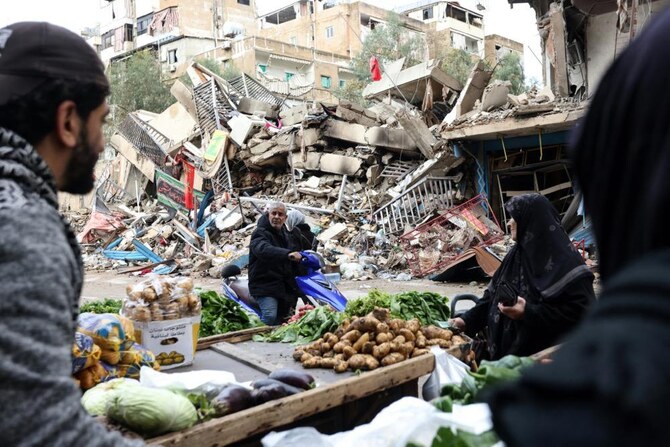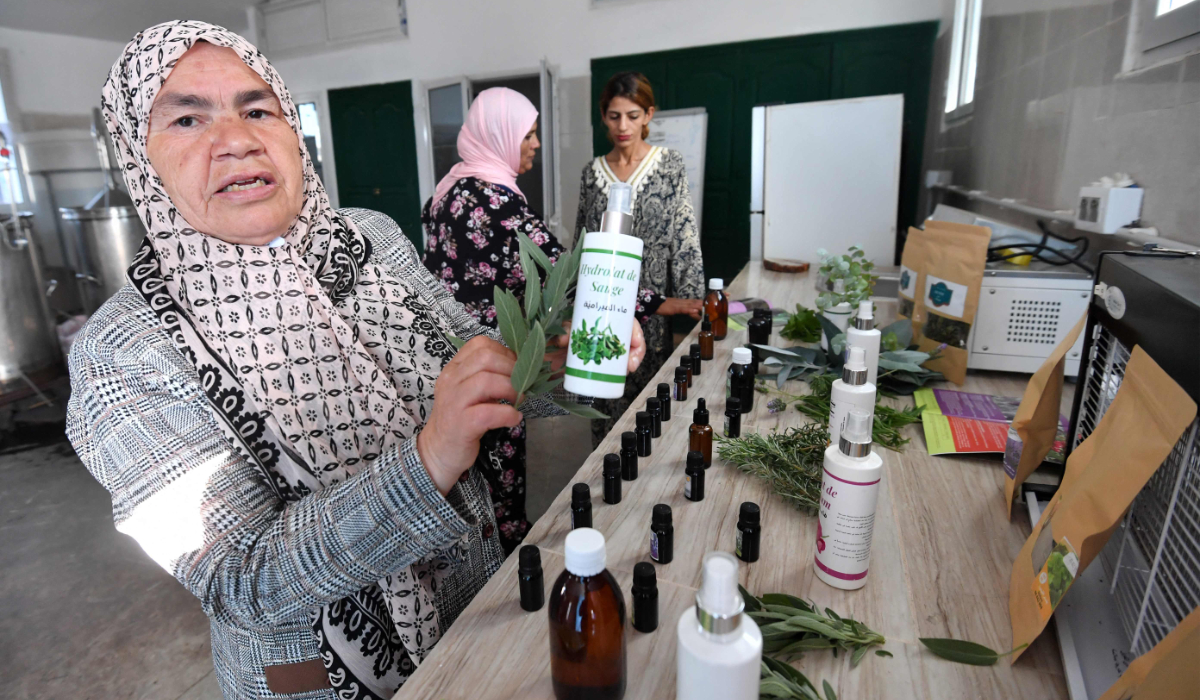TUNIS, Tunisia: Dozens of members of Tunisia’s largest opposition party were arrested this week ahead of this weekend’s formal start of the campaign season for the country’s presidential election, officials of the Islamist party said Friday.
Ennahda, the party that rose to power in the aftermath of the country’s Arab Spring, said Friday that tallies collected by its local branches suggested at least 80 men and women from the party had been apprehended as part of a countywide sweep.
In a statement, Ennahda called the arrests “an unprecedented campaign of raids and violations of the most basic rights guaranteed by law.”
Former Minister of Youth and Sports Ahmed Gaaloul, a member of the party’s executive committee and adviser to its imprisoned leader Rached Ghannouchi, said the party had counted at least 80 arrests and was in the process of checking at least 108 total. The arrests included high-ranking party officials and had continued through Friday afternoon. Among them were Mohamed Guelwi, a member of the party’s executive committee, and Mohamed Ali Boukhatim, a regional party leader from Ben Arous, a suburb of Tunis.
The mass arrests are the latest to mar an already turbulent election season in Tunisia.
With political apathy rampant and the country’s most prominent opposition figures in prison, President Kais Saied has long been expected to win a second term without significant challenge. But the past few months have seen major upheaval. Saied has sacked the majority of his cabinet and authorities have arrested more of his potential opponents. The country’s election authority made up of members he appointed has defied court orders to keep certain challengers off of the October 6 ballot.
Those moves came after months of cascading arrests of journalists, lawyers and leading civil society figures, including many critics of the president charged under a controversial anti-fake news law that human rights groups say has been increasingly used to quash criticism.
Ennahda is still in the process of confirming the nature of each of the arrests but many of those apprehended this week were previously facing charges, Gaaloul said.
The arrested included many senior members of the party involved in Tunisia’s transitional justice process, which includes Ennahda members who were tortured in the years before President Zine El Abidine Ben Ali became the first Arab dictator toppled in the 2011 Arab Spring uprisings.
Tunisia’s globally acclaimed transitional justice process is a decade-old initiative designed to help victims who suffered at the hands of the government.
Ennahda is no stranger to having party members arrested. Ghannouchi, the party’s 83-year-old leader, has been in prison since April 2023. Multiple high-ranking officials, including members of its shura council and executive committee have also been arrested over the past year. This week’s arrests are the latest since authorities arrested party secretary general Lajmi Lourimi two months ago. Though the party has for more than three years decried arrests, detentions and legal proceedings against its members, Gaaloul said it had not previously seen arrests on a scale similar to this week.
The arrests came as hundreds of Tunisians protested in the North African nation’s capital, decrying the emergence of what they called a police state ahead of the Oct. 6 election. They were roundly condemned by other parties.
“These arrests come as a sign of further narrowing and deviation? of the electoral process aiming at spreading fear and emptying the upcoming election of any chance for a real democratic competition,” Work and Accomplishment, a party led by former Ennahda member Abdellatif Mekki, said in a statement on Friday.
Mekki, who served as Tunisia’s Health Minister from 2011 to 2014, was also arrested in July on murder charges that his attorneys decried as politically motivated. Tunisia’s election authority has said it will defy an administrative court order and keep him off of next month’s ballot.




































